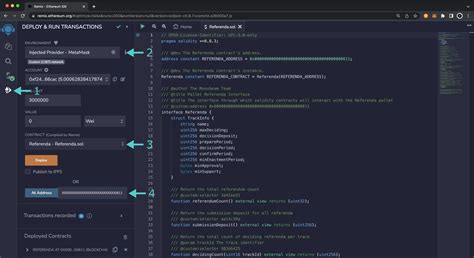Ethereum: Does the pre -compile address affect the root of the state?
When you build a stack of layer 2 (L2), it is not unusual to encounter problems with the generation of state roots. One of the most common problems is that pre-compasions used by the EIP-1559 and other Ethereum intelligent contract standards can affect the state root behavior.
In this article, we will deepen the reason why pre -compasions could affect the root of the state and explore how to optimize the L2 stack for better results.
What is a state root?
Before we face the problem, let’s go through the rapidly what is a state root. The state root is an abstract data structure that contains all the information needed for the Ethereum blockchain to perform intelligent contracts. Essentially, it is a compact representation of the entire state of the blockchain in a given moment.
Why precompile addresses affect the root of the state
When using a pre -compiled address, it means you use a compiled contract that contains logic for your specific app. These pre -compiled addresses are essentially functions that return the balance of an Ethereum account or other relevant data. When these accounts interact with blockchain, their condition is updated in “State_root”.
The problem arises when the precompile address is used to calculate the “state_root” of a contract. State_root is generated using the compiled function and the input parameters from the contract signature. However, if you use a pre -compiled address that depends on the hips or data of other accounts, the resulting state root may not accurately reflect the current blockchain state.
Impact on stack L2

In a l2 stack, several contracts are executed on different blocks of space on the main chain. State_root is used to calculate the condition of the new block by connecting it to the state of the previous block. However, if a contract uses a pre -compiled address that depends on the hips or data of other accounts, the resulting state root can be affected.
For example, consider a simple L2 stack with two contracts:
- The contract uses the contract as an entry.
The ba contract has a precompile address that returns the balance of an account.
Whencontract bare is executed on a new block, it calculates the state root by connecting to the state of the anterior block using the pre -compiled address from” Contract A “. However, if “contract B” depends on other accounts “hips (for example,` contract) for its calculations, the resulting state root may not accurately reflect blockchain.
Optimization of state roots generation
To optimize the L2 stack and to minimize problems with pre -compales affecting the state root:
- Use deterministic contracts : Instead of using pre -compiled addresses that depend on the hips or data of other accounts, opted for more deterministic contracts that can directly calculate their results.
- Avoid pre -compiled dependent functions : If possible, avoid pre -compiled functions that depend on the hips or data of other accounts. This will reduce the probability of errors and ensure an exact generation of the state roots.
- Use the validation of the input parameters : Check that all the entries to your contracts are valid and in accordance with the current blockchain status. This can help minimize errors and prevent problems caused by precompile addresses.
By following these best practices, you can optimize the L2 stack and improve the performance and accuracy of your intelligent contract on the main Ethereum chain.
Conclusion
In this article, I explored why pre -compasions addresses affect the state root of contracts in a stack. We also discussed strategies for optimizing the generation of state roots to minimize problems with dependent functions or accounts. By applying these best practices, you can build more reliable and efficient intelligent contract applications on the main Ethereum chain.
